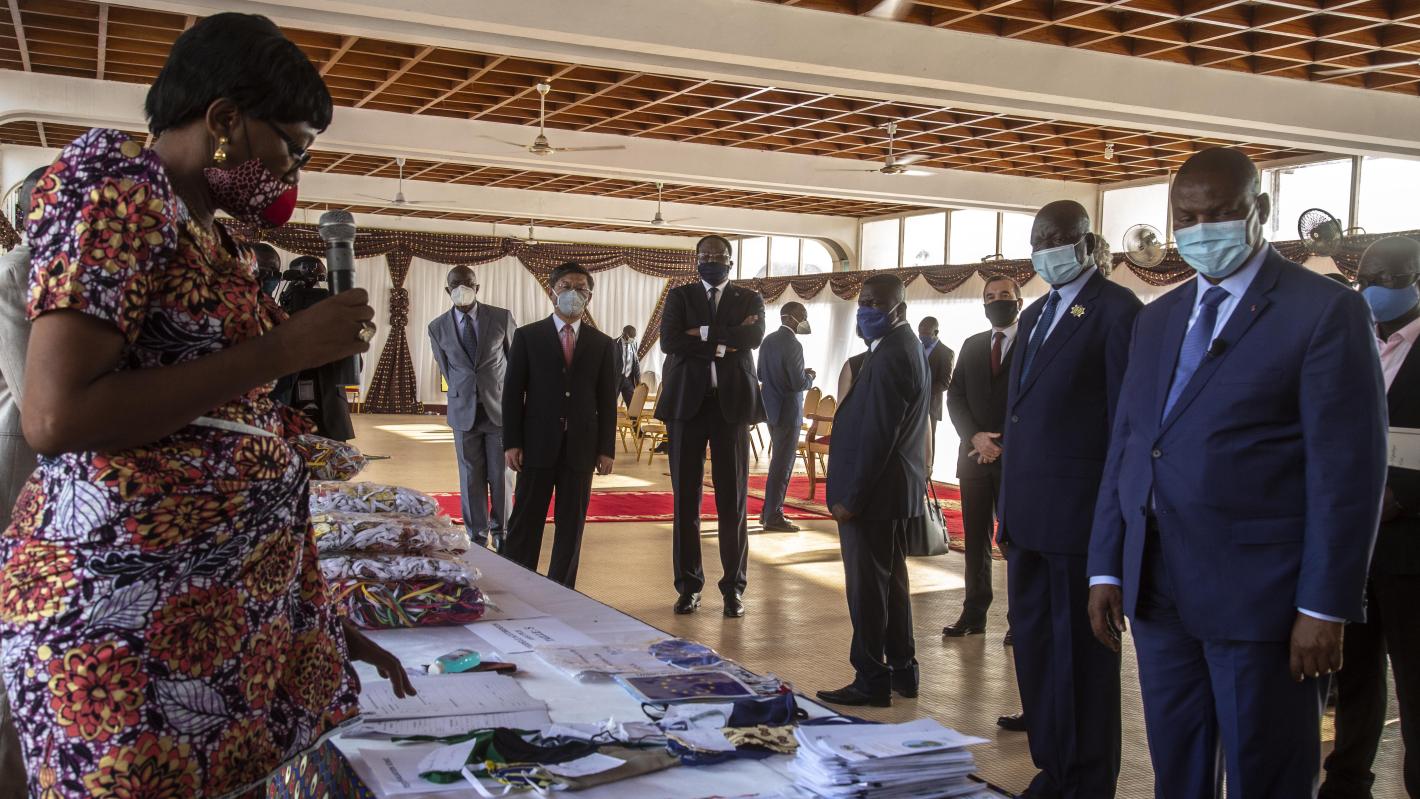The use of face masks in public had been left to personal discretion since the outbreak of the coronavirus pandemic. That changed on 12 June 2020, when the Government of the Central African Republic (CAR) launched a campaign making wearing masks mandatory – as the number of Covid-19 infections multiply across the country.
The new directive meant to curb the spread of the virus was announced by the Head of State, Faustin Archange Touadéra, during an official ceremony marking the start of the campaign at the Palais de la Renaissance in Bangui. In attendance were several members of the Government and international partners, including MINUSCA Chief, Mankeur Ndiaye.
There has been an alarmingly rapid rise in the number of coronavirus infections across the country in recent weeks – to over 2,000 confirmed cases currently – according to figures from the Ministry of Public Health and Population. The directive on the obligatory wearing of masks in public seeks to counter this negative trend, as the gradual easing of confinement is set to begin.
President Touadéra has also announced the partial reopening of places of worship and restaurants, while urging the continued respect of Covid-19 preventive measures among the population. “The mandatory wearing of masks must be universally adopted as an accompanying measure to the general deconfinement, as is the case in other countries. That is why I declare today the compulsory wearing of masks in public places throughout the national territory,” he stated.
As part of efforts to support the campaign, he indicated that the national authorities would be embarking on the large-scale production and free distribution of 10 million hand-made masks countrywide, at a rate of two masks for every person over three years of age. “I am convinced that this additional and crucial measure will break the chain of transmission of coronavirus infections and quickly reverse the trend of the epidemic and its impact.”
Significantly, mask production since the onset of the pandemic has boosted the local economy, which will benefit from 10 billion CFA francs over a three-month period. The services of more than 60 tailoring workshops in Bangui have been solicited. Some 18,000 tailors are expected to produce half a million masks in less than a fortnight.
MINUSCA has supported the Government’s efforts to fight the public health crisis through various initiatives: raising awareness on Covid-19 preventive measures using diverse channels of communication to include broadcast media and door-to-door contact, donating protective equipment and hygiene kits, distributing 50,000 crank radios to facilitate access to information and providing training on stopping the spread of the virus.






